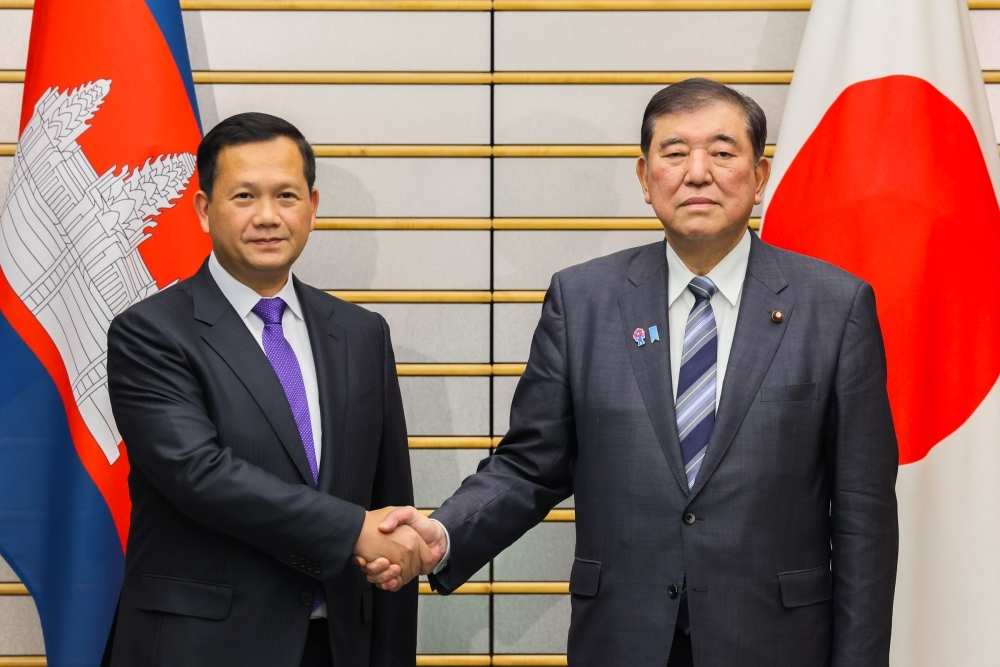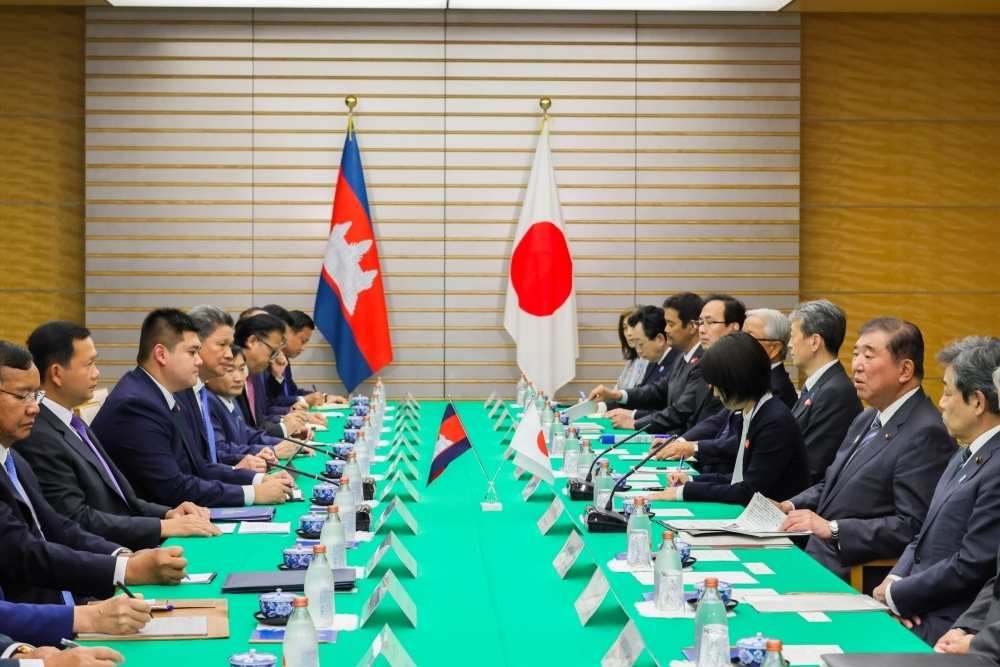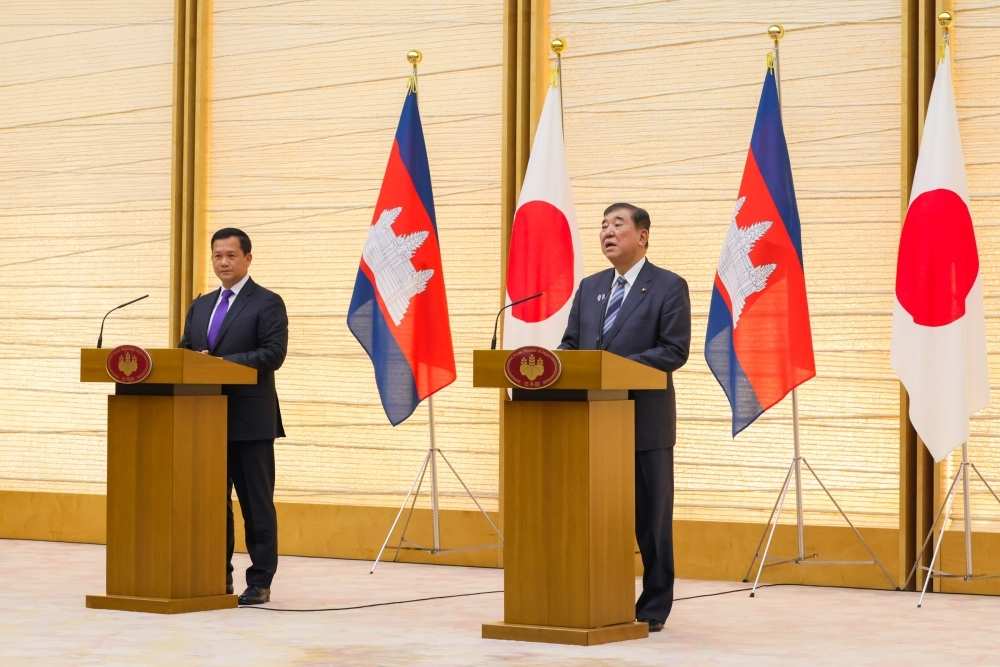Tokyo, May 30 (AseanAll) — On May 30th,2025, ISHIBA Shigeru, Prime Minister of Japan, held a Summit meeting with HUN Manet, Prime Minister of the Kingdom of Cambodia, who was visiting Japan on Official Working Visit. It was followed by a joint press conference and a working dinner lasting approximately 95 minutes.

On this occasion, the two leaders issued Japan-Cambodia Joint Statement and "Economic Co-Creation Package."
Ishiba stated that Cambodia is an important partner for Japan, as the first ASEAN country to express its support for a "Free and Open Indo-Pacific." He further highlighted that the cooperation between Japan and Cambodia has expanded beyond bilateral relations to include international cooperation for peace and stability, including demining in affected third countries such as Ukraine. He expressed Japan’s strong desire to further strengthen cooperation with Cambodia in order to realize a "Free and Open Indo-Pacific" based on the rule of law and to maintain and strengthen a multilateral free trading system amidst an increasingly uncertain international situation.
Hun Manet expressed his gratitude to Prime Minister Ishiba and the Japanese side for their hospitality during this visit. He further stated that the cooperative relationship between the two countries has been expanding and expressed his desire to deepen cooperation with Prime Minister Ishiba for the mutual benefit of both countries and their people, as well as for regional and international peace and stability under the “Comprehensive Strategic Partnership.”

The two leaders welcomed and appreciated the recent port call of Japan Maritime Self-Defense Force vessels to the Ream Naval Base. They concurred on further strengthening cooperation in the security field, such as the cooperation in the maritime security and the provision of Official Security Assistance (OSA).
Both leaders discussed to work together to maintain and strengthen a multilateral free trading system while also cooperating with Cambodia in diversifying its economic partners amidst an increasingly uncertain global economic environment. Prime Minister Hun Manet expressed his gratitude to the Japanese government and people for their support for peace, reconstruction, and development in Cambodia. He expressed his hope for continued support and investment from Japan for Cambodia's future economic development.
Both leaders confirmed to cooperate in creating a more conducive investment environment in Cambodia through the “Economic Co-creation Package,” including by strengthening the framework for attracting and supporting Japanese investment and by providing assistance through the OECD, in order to promote investment by Japanese companies in Cambodia.
They also confirmed to cooperate in the development of Sihanoukville Port, in digital fields, cybersecurity, the development of core telecommunications networks, including 5G, and clean energy through the Asia Zero Emission Community (AZEC).
The two leaders discussed Cambodia’s democratic development.
The two leaders concurred on enhancing cooperation between the police authorities in addressing transnational crimes, including online fraud.
Ishiba expressed appreciation for the two countries' collaboration in demining in Ukraine and other countries and stated aboutthe upcoming Ukrainian Mine Action Conference to be held in Japan this fall, and both leaders confirmed to further strengthen cooperation in mine action.

Both leaders discussed a wide range of economic issues, including the increasingly uncertain global economy and multilateral free trading system.
Both leaders reaffirmed to work closely together to address regional and international matters, such as North Korea, including nuclear, missile development and the abductions issue, as well as the East China Sea, the South China Sea, and Myanmar.